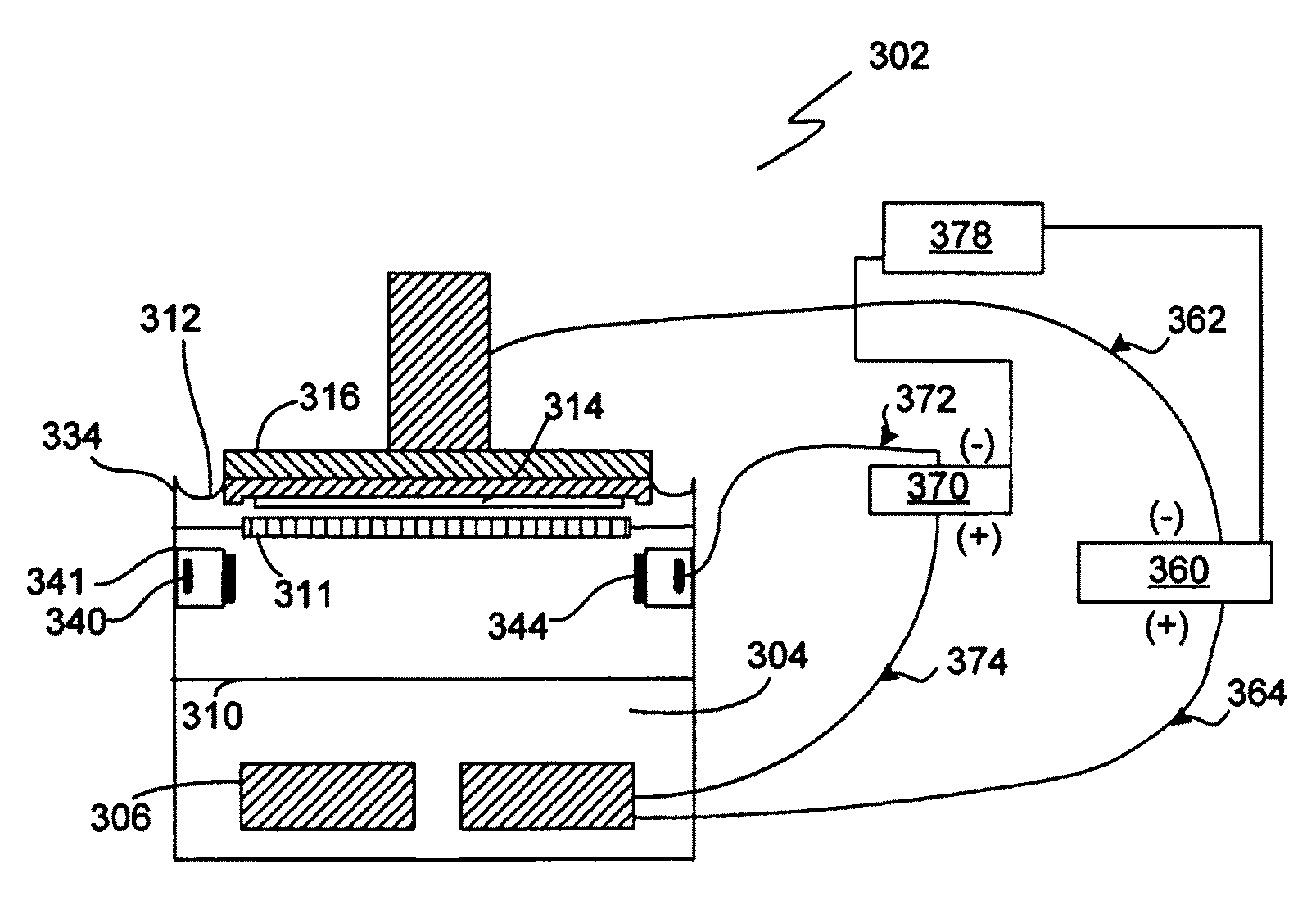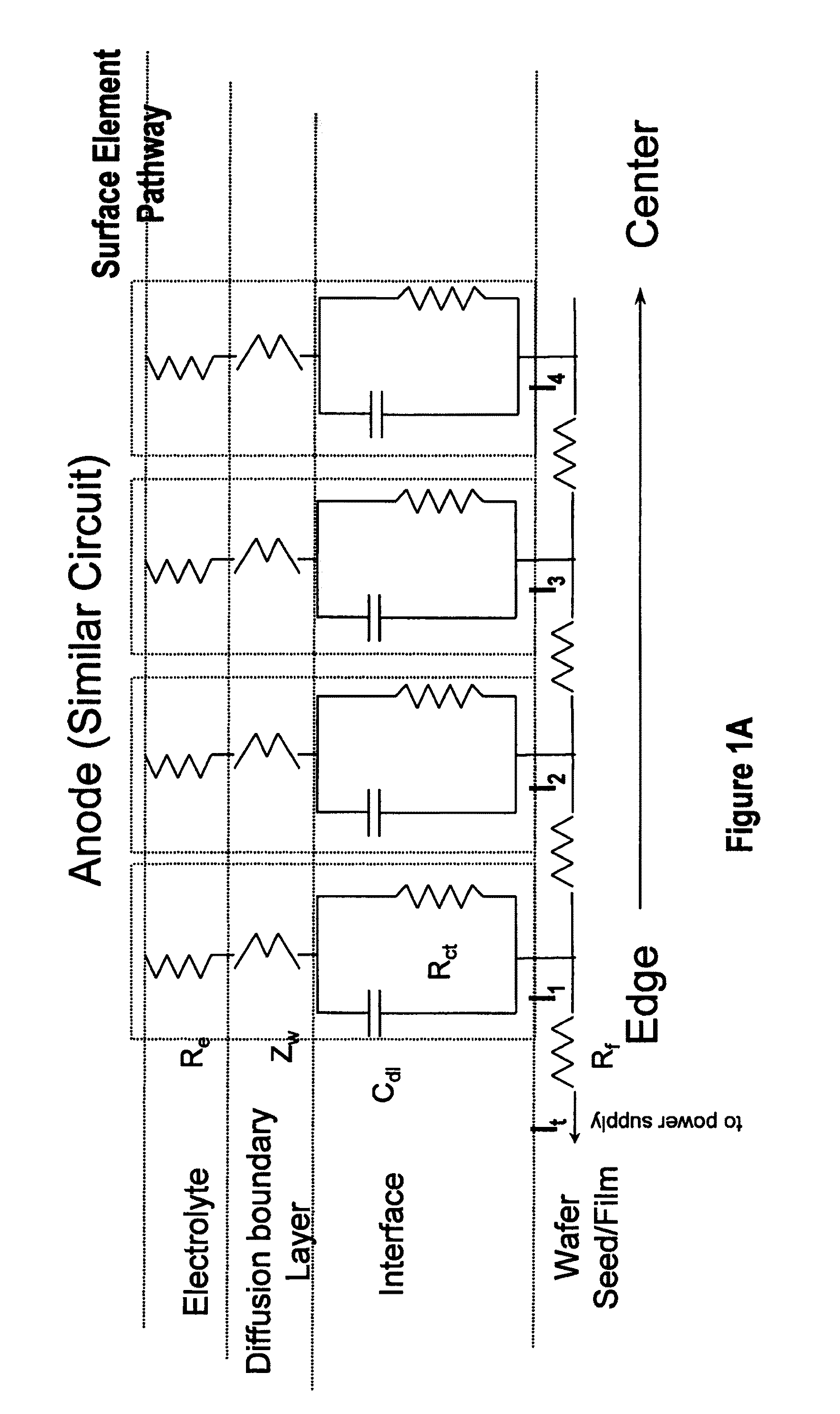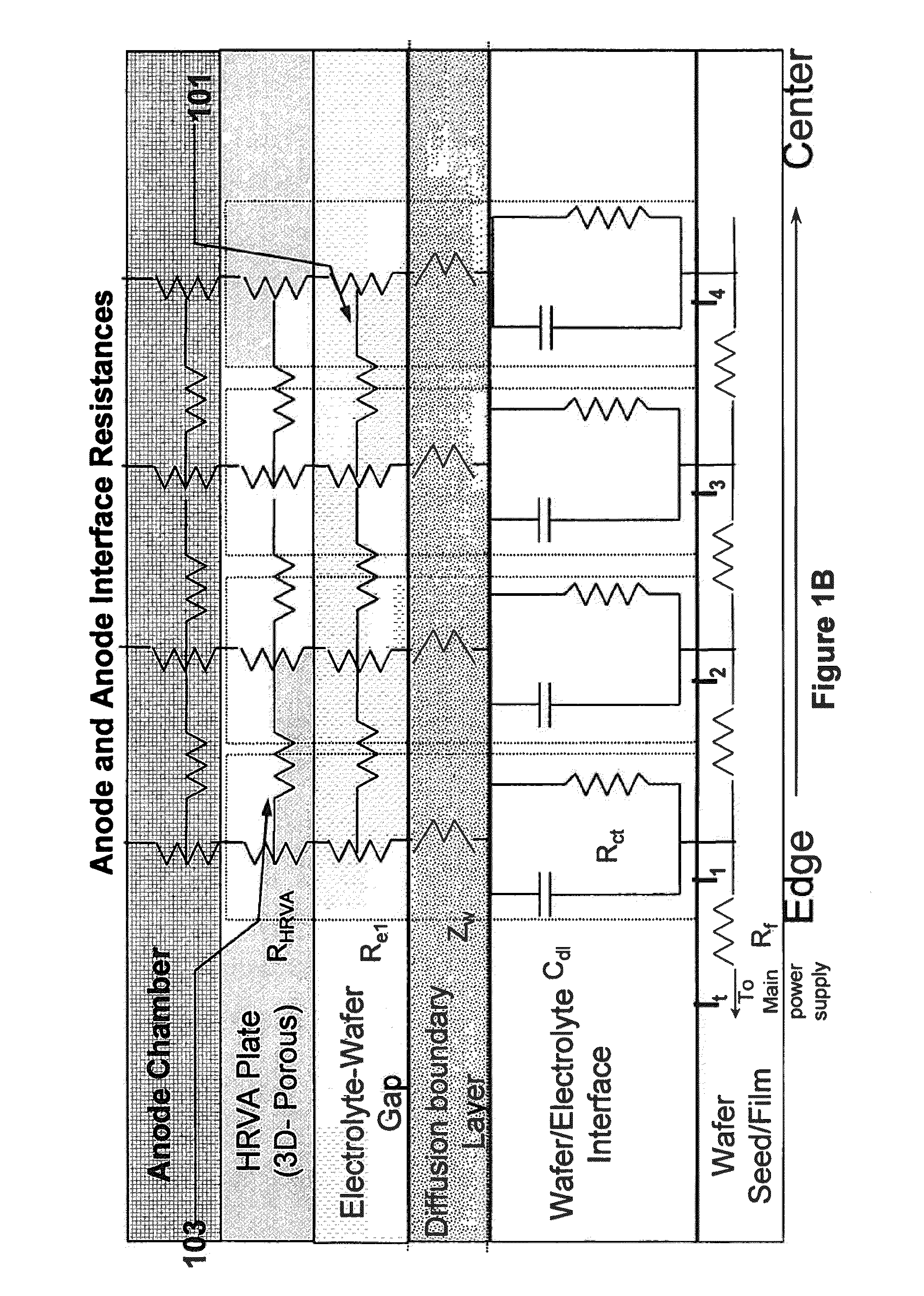Method and apparatus for electroplating
a technology of electroplating and method, applied in the direction of electrochemical machining apparatus, metal-working apparatus, metallic material coating process, etc., can solve the problems of extreme terminal effect situation, non-uniform thickness distribution of plating, and significant limitations of approaches to physical properties of materials and processes, so as to improve plating uniformity
- Summary
- Abstract
- Description
- Claims
- Application Information
AI Technical Summary
Benefits of technology
Problems solved by technology
Method used
Image
Examples
Embodiment Construction
[0029]Advanced technologies call for the electroplating of metals onto wafers with sheet resistances of 10 ohm per square and higher (even 20 ohms per square or 40 ohms per square or higher). This requires ever more aggressive techniques (i.e., techniques other than only the use of a HRVA alone or a thief electrode alone) to compensate for the terminal effect. During plating, the thickness of metal and the sheet resistance can drop several orders of magnitude in a short time, and so methods and apparatus capable of plating uniformly on the wafer throughout a process where there may be a rapidly initially varying and later a relatively constant sheet resistance are required. Embodiments of the present invention address the challenges presented by such high resistance seed layers, the rapid dynamic variance in the seed electrical parameters, and the extreme terminal effect they present.
[0030]Embodiments of the present invention pertain to methods and apparatuses for electroplating a s...
PUM
| Property | Measurement | Unit |
|---|---|---|
| diameter | aaaaa | aaaaa |
| porosity | aaaaa | aaaaa |
| diameter | aaaaa | aaaaa |
Abstract
Description
Claims
Application Information
 Login to View More
Login to View More - R&D
- Intellectual Property
- Life Sciences
- Materials
- Tech Scout
- Unparalleled Data Quality
- Higher Quality Content
- 60% Fewer Hallucinations
Browse by: Latest US Patents, China's latest patents, Technical Efficacy Thesaurus, Application Domain, Technology Topic, Popular Technical Reports.
© 2025 PatSnap. All rights reserved.Legal|Privacy policy|Modern Slavery Act Transparency Statement|Sitemap|About US| Contact US: help@patsnap.com



